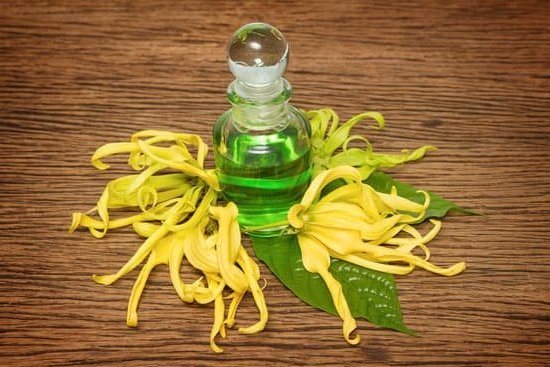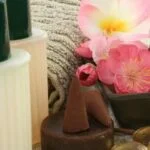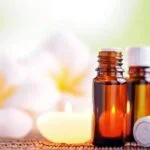Anxiety aromatherapy is a holistic approach gaining popularity in the realm of mental health and wellness. Understanding anxiety and its impact on daily life is crucial for exploring alternative methods to manage this common condition. Anxiety is more than just feeling stressed or worried; it can manifest in physical symptoms like restlessness, racing thoughts, and even panic attacks, affecting one’s overall well-being.
Aromatherapy, known for its therapeutic benefits, has been recognized for promoting relaxation, reducing stress, and improving mood. Its use in alleviating anxiety has shown promising results, offering a natural and non-invasive way to address the symptoms of anxiety. By leveraging the power of essential oils extracted from plants, aromatherapy taps into the potent healing properties that can positively influence emotional states and promote mental clarity.
Specific essential oils have been identified for their calming effects on the mind and body, making them ideal candidates for managing anxiety. Lavender, chamomile, and frankincense are among the top essential oils known for their anxiety-relieving properties. These oils can be utilized through various techniques such as diffusion, topical application, or inhalation to experience their soothing effects. Incorporating aromatherapy into daily routines can be a beneficial addition to traditional approaches for addressing anxiety symptoms effectively.
Benefits of Aromatherapy
Aromatherapy is a holistic healing treatment that uses natural plant extracts, known as essential oils, to promote overall well-being. These essential oils are believed to offer various benefits for both the mind and body, making aromatherapy a popular choice for relaxation and stress relief. The use of aromatherapy dates back centuries and has been practiced in different cultures around the world.
One of the key benefits of aromatherapy is its ability to reduce stress and anxiety levels. In today’s fast-paced world, many individuals experience high levels of stress and anxiety due to various factors such as work pressure, personal relationships, or health concerns.
Aromatherapy provides a natural and effective way to calm the mind, relax the body, and alleviate symptoms of anxiety. The soothing scents of essential oils can help create a sense of peace and tranquility, promoting emotional well-being.
Apart from anxiety relief, aromatherapy offers a wide range of other health benefits. Essential oils have antimicrobial properties that can help boost the immune system and fight off infections. Certain essential oils also possess anti-inflammatory properties that can aid in reducing pain and inflammation in the body.
Additionally, aromatherapy has been known to improve sleep quality, enhance mood, increase focus and concentration, as well as provide relief from headaches and migraines. With its diverse range of benefits, aromatherapy continues to be a popular complementary therapy for enhancing overall wellness.
How Aromatherapy Helps With Anxiety
Anxiety aromatherapy is becoming increasingly popular as people seek natural solutions to manage their symptoms of anxiety. Aromatherapy, the practice of using essential oils for therapeutic purposes, has been known to have a calming and relaxing effect on the mind and body. When it comes to anxiety, specific essential oils can play a key role in alleviating symptoms and promoting a sense of calmness.
Here are some ways in which aromatherapy can help with anxiety:
- Stress Relief: Essential oils such as lavender, chamomile, and bergamot have been shown to help reduce stress levels and promote relaxation. Inhaling these oils or using them in a diffuser can help calm the nervous system and ease feelings of tension and unease.
- Mood Enhancement: Citrus oils like lemon, orange, and grapefruit are known for their uplifting properties that can help improve mood and alleviate feelings of anxiety. These refreshing scents can boost energy levels and create a sense of positivity.
- Sleep Support: Anxiety often disrupts sleep patterns, leading to insomnia or restlessness. Essential oils like cedarwood, valerian, and clary sage have sedative properties that can promote better sleep quality and help individuals relax before bedtime.
By incorporating these essential oils into your daily routine through various aromatherapy techniques, you can effectively manage symptoms of anxiety naturally. Whether you choose to diffuse the oils, apply them topically with carrier oils or add them to a relaxing bath, aromatherapy offers versatile options for finding relief from anxiety. Research suggests that consistent use of these essential oils can lead to long-term benefits in managing anxiety levels and improving overall well-being.
Best Essential Oils for Anxiety
When it comes to managing anxiety, essential oils can be a powerful tool in promoting relaxation and calmness. The use of specific essential oils known for their anxiety-relieving properties has been shown to be effective in alleviating symptoms of stress and anxious feelings. Below are some of the best essential oils for anxiety that you can incorporate into your aromatherapy routine:
- Lavender: Lavender essential oil is perhaps one of the most popular choices for reducing anxiety and promoting relaxation. Its calming aroma is known to help reduce stress levels and improve overall well-being.
- Chamomile: Chamomile essential oil is another great option for easing anxiety symptoms due to its soothing and sedative properties. It can help promote better sleep and relaxation, making it an excellent choice for those dealing with anxious feelings.
- Bergamot: Bergamot essential oil is often used to uplift mood and reduce feelings of tension and stress. Its citrusy scent can help create a sense of calmness and positivity, making it a valuable tool in managing anxiety.
In addition to these essential oils, other popular options for anxiety relief include ylang-ylang, frankincense, and rose. These oils can be used individually or blended together to create a personalized aromatherapy experience tailored to your specific needs. Whether diffused in a room, applied topically, or inhaled directly from the bottle, incorporating these essential oils into your daily routine can help alleviate symptoms of anxiety and promote emotional well-being.
Remember that everyone’s response to essential oils may vary, so it’s important to experiment with different blends and techniques to find what works best for you. If you’re new to using aromatherapy for anxiety relief, start with small amounts of diluted oil and gradually increase as needed. Always consult with a healthcare professional if you have any concerns or pre-existing conditions before using essential oils for anxiety management.
Aromatherapy Techniques
Aromatherapy has gained popularity as a natural way to manage anxiety and promote overall well-being. When it comes to using aromatherapy for anxiety relief, there are various techniques that can be employed to maximize its benefits. One of the most common methods is diffusing essential oils in the air using a diffuser.
Inhalation of these essential oils through the air can have a direct impact on the limbic system, which is responsible for emotions, including anxiety. Some popular essential oils for diffusing to ease anxiety include lavender, chamomile, and ylang-ylang.
Another effective method of utilizing aromatherapy for anxiety relief is through topical application. Essential oils can be diluted with carrier oils like coconut or jojoba oil and applied directly to the skin. This allows the oils to be absorbed through the skin and enter the bloodstream, providing a calming effect.
Topical application is particularly beneficial for targeting specific areas of tension or stress in the body. Oils like frankincense, bergamot, and clary sage are known for their calming properties when used topically.
Inhalation is also a powerful technique for obtaining the benefits of aromatherapy for anxiety relief. This can be done by inhaling essential oils directly from the bottle or by adding a few drops to a bowl of hot water and breathing in the steam.
Inhaling essential oils allows them to reach the olfactory system quickly, triggering immediate responses in the brain that can help alleviate feelings of anxiety and stress. Techniques such as deep breathing exercises combined with inhalation of calming essential oils can amplify relaxation effects and promote a sense of calm amidst moments of heightened anxiety.
| Aromatherapy Technique | Description |
|---|---|
| Diffusing | Utilizing a diffuser to disperse essential oils into the air for inhalation, targeting emotions related to anxiety. |
| Topical Application | Diluting essential oils with carrier oils and applying them directly onto the skin to absorb their calming effects. |
| Inhalation | Breathing in essential oil vapors either from the bottle or from steam, affecting immediate responses in reducing anxiety levels. |
DIY Aromatherapy Blends
Aromatherapy has been recognized for its benefits in promoting relaxation, reducing stress, and easing symptoms of anxiety. Making your own custom essential oil blends can be a fun and effective way to harness the power of aromatherapy for managing anxiety. By combining specific essential oils known for their calming properties, you can create personalized blends that cater to your unique needs and preferences.
Calming Blend
To create a soothing blend that helps calm the mind and relax the body, try combining equal parts of lavender, chamomile, and bergamot essential oils. Lavender is renowned for its ability to promote relaxation and reduce tension, while chamomile offers a gentle sedative effect.
Bergamot adds a citrusy aroma that uplifts the mood and eases anxiety. Mix a few drops of each oil in a carrier oil like sweet almond or jojoba, then apply to pulse points or use in a diffuser for long-lasting relief.
Grounding Blend
For those seeking a sense of stability and grounding during times of anxiety, consider blending frankincense, patchouli, and vetiver essential oils. Frankincense has been traditionally used for centering the mind and deepening breathing, while patchouli’s earthy scent promotes feelings of security and connectedness.
Vetiver is known for its calming effects on the nervous system, making it an excellent addition to this grounding blend. Mix these oils together with a carrier oil or add them directly to an inhaler for on-the-go anxiety relief.
Uplifting Blend
When you need an extra boost of positivity and energy to combat feelings of anxiousness, try creating an uplifting blend with grapefruit, ylang-ylang, and rosemary essential oils. Grapefruit’s bright citrus scent invigorates the senses and uplifts the mood, while ylang-ylang promotes feelings of joy and inner peace.
Rosemary’s stimulating aroma can help clear mental fog and enhance focus. Combine these oils in a roller bottle with fractionated coconut oil for a refreshing pick-me-up whenever you need it most.
Experiment with different combinations of essential oils to customize your own aromatherapy blends tailored specifically for anxiety relief. Remember to perform patch tests before applying blends to your skin and consult with a certified aromatherapist if you have any concerns about using essential oils safely. With the right blend of aromatic essences, you can create powerful allies in managing anxiety naturally through aromatherapy practices at home.
Research and Studies
Numerous studies have been conducted to investigate the efficacy of aromatherapy in managing anxiety. One study published in the Journal of Alternative and Complementary Medicine found that inhalation of lavender essential oil significantly reduced anxiety levels in participants compared to a control group. The calming effects of lavender essential oil were attributed to its ability to interact with the limbic system, the part of the brain responsible for emotions and memories.
Another research study published in the Journal of Korean Academy of Nursing showed that bergamot essential oil demonstrated anxiolytic effects on patients undergoing coronary angiography. The participants who received aromatherapy using bergamot essential oil reported lower levels of anxiety and improved heart rate variability during the procedure. These findings suggest that specific essential oils can play a valuable role in managing anxiety in clinical settings.
Furthermore, a systematic review published in the Journal of Clinical Nursing analyzed multiple studies on the use of aromatherapy for anxiety and stress relief. The review concluded that aromatherapy had a positive impact on reducing anxiety levels across various populations, including cancer patients, pregnant women, and psychiatric patients. The consistent results from these studies provide compelling evidence supporting the effectiveness of aromatherapy as a complementary approach for alleviating anxiety symptoms.
Precautions and Tips
In conclusion, anxiety aromatherapy can be a powerful tool in managing and alleviating symptoms of anxiety. Understanding the impact of anxiety on daily life is crucial in recognizing the importance of seeking out natural remedies like aromatherapy. The benefits of aromatherapy extend beyond just relaxation, providing a holistic approach to overall wellness.
When it comes to using aromatherapy for anxiety relief, it is essential to know how specific essential oils can help target symptoms effectively. From lavender to chamomile, there are a variety of essential oils known for their calming properties that can be incorporated into your daily routine. By utilizing different techniques such as diffusing, topical application, and inhalation, you can experience the full benefits of aromatherapy in managing anxiety.
Furthermore, taking precautions and following expert tips on safe usage is paramount in maximizing the effectiveness of aromatherapy for anxiety. Dilution ratios and potential side effects should always be considered when creating DIY blends or using essential oils topically. With research studies supporting the efficacy of aromatherapy in anxiety management, incorporating this natural remedy into your self-care routine can contribute to a sense of calm and well-being in your life.
Frequently Asked Questions
What Essential Oil Is Best for Anxiety?
Lavender essential oil is often considered the best for anxiety due to its calming and soothing properties. It is known to promote relaxation, reduce stress levels, and improve overall mood.
What Is the 3 3 3 Rule for Anxiety?
The 3 3 3 rule for anxiety involves identifying three things you can see, hear, and touch whenever you feel overwhelmed or anxious. This grounding technique helps bring your focus back to the present moment and away from negative thoughts.
What Is Aromatherapy for Anxiety?
Aromatherapy for anxiety involves using essential oils to promote relaxation and reduce stress levels. Scents like lavender, chamomile, bergamot, and rose are commonly used in aromatherapy practices to help calm the mind and body. It can be done through inhalation or topical application for best results.

Are you looking for a natural way to improve your health and wellbeing?
If so, aromatherapy may be the answer for you.





